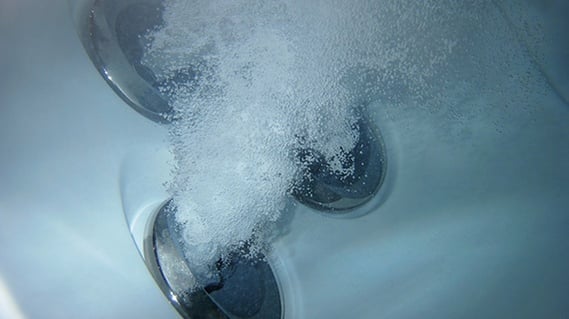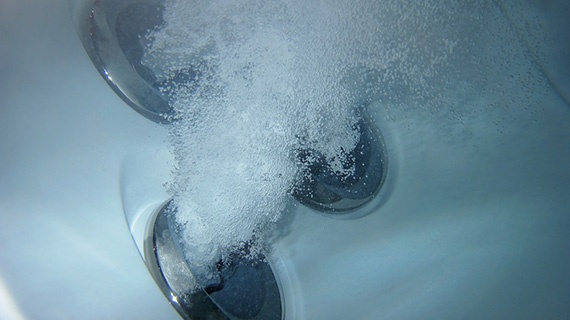
Spa pools are growing in popularity – not only in luxury hotels for a weekend getaway, but at home, too. Spa pools are a sign of complete decadence and enjoyment for many, and the fact that they are readily available at lower and lower prices means that it is easier than ever to own one. But simply owning a spa pool is not the end of the matter – without the proper maintenance, this wonderful means of relaxation can be deadly.
The risk of legionella in spa pools
Legionella bacteria proliferate in water that has a temperature of between 20° and 45° C. A spa pool’s water temperature is around 36° to 37° C. This is ideal for us to bathe in, since our normal body temperature is also 36° to 37° C. That’s one of the reasons we love spa pools so much. But unfortunately, this temperature is also exactly right for legionella bacteria to grow and thrive.
The presence of legionella in spa pools and other bodies of water isn’t dangerous in itself. In order to make some ill (or even to kill them), legionella bacteria must be inhaled. It attacks the lungs, causing Legionnaires’ disease, a type of pneumonia.
And that’s why spa pools are particularly nasty when it comes to making people ill – it’s the spray. The bubbles cause a miniscule shower of droplets when they burst. It’s not particularly noticeable, but when we’re using a spa pool we’re breathing in spray from the bubbles constantly. If those bubbles contain legionella bacteria, it is possible that someone using the pool could contract Legionnaires’ disease. Anyone with a compromised immune system, the elderly and very young children are particularly at risk.
Are you doing enough to control the risk?
The problem of legionella in spa pools is bigger than ever, mainly due to the fact that there are more spa pools around than ever before, and because a lot of those are used in a domestic setting where the cleaning routine is sometimes not followed as well as it should be. That said, some more professional settings can also have fairly lax maintenance regimes too. Think back to 2012 and the three people who died after contracting Legionnaires’ disease from a garden centre spa pool. Unless these pools are cleaned regularly, dosed with the appropriate chemicals, and tested to ensure they are safe, there is a risk of legionella bacteria being found within them, and the droplets that they release into the air.
Recently, the Health Protection Agency (HPA) has said that it will release new guidance on the matter of spa pools and Legionnaires’ disease in October 2016. It’ll be interesting to see what it recommends in light of spa pools’ recent increase in popularity.
In the meantime, if you have a spa pool on your premises and are concerned about the risk of legionella, get in touch with Brodex for a free site survey.







